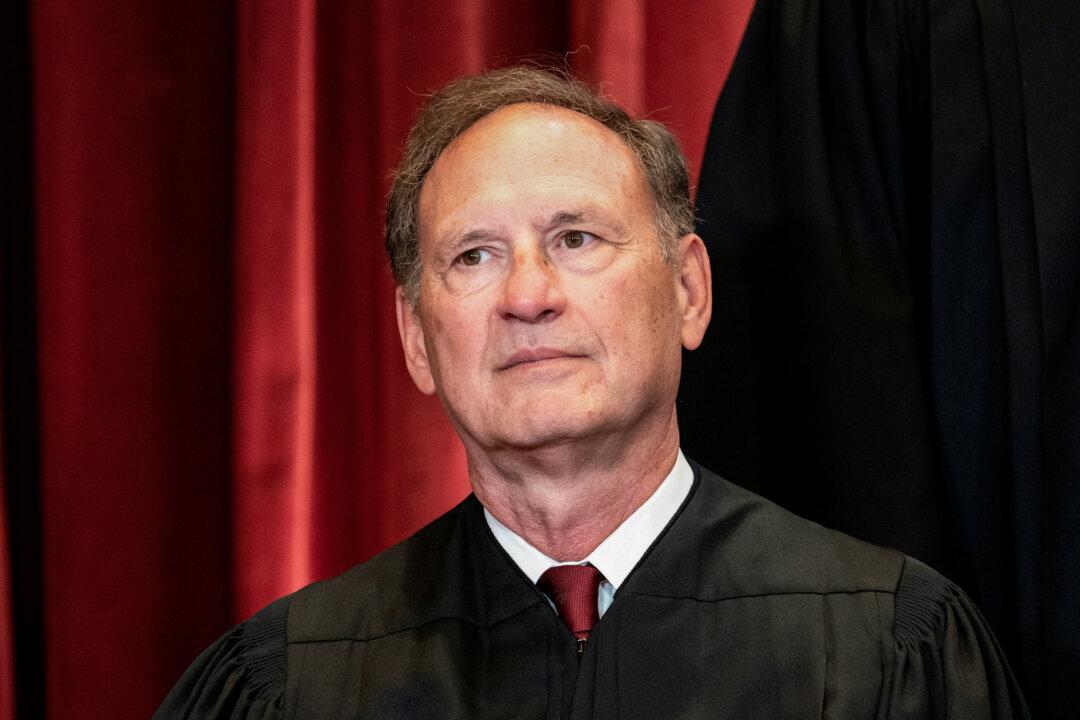Supreme Court Justice Samuel Alito filed a strongly worded dissent from the court’s order issued early April 19 that temporarily blocked the Trump administration from deporting alleged members of the Venezuelan criminal gang Tren de Aragua.
The dissenting opinion, which was joined by Justice Clarence Thomas, was posted on the court’s website early on April 20.





